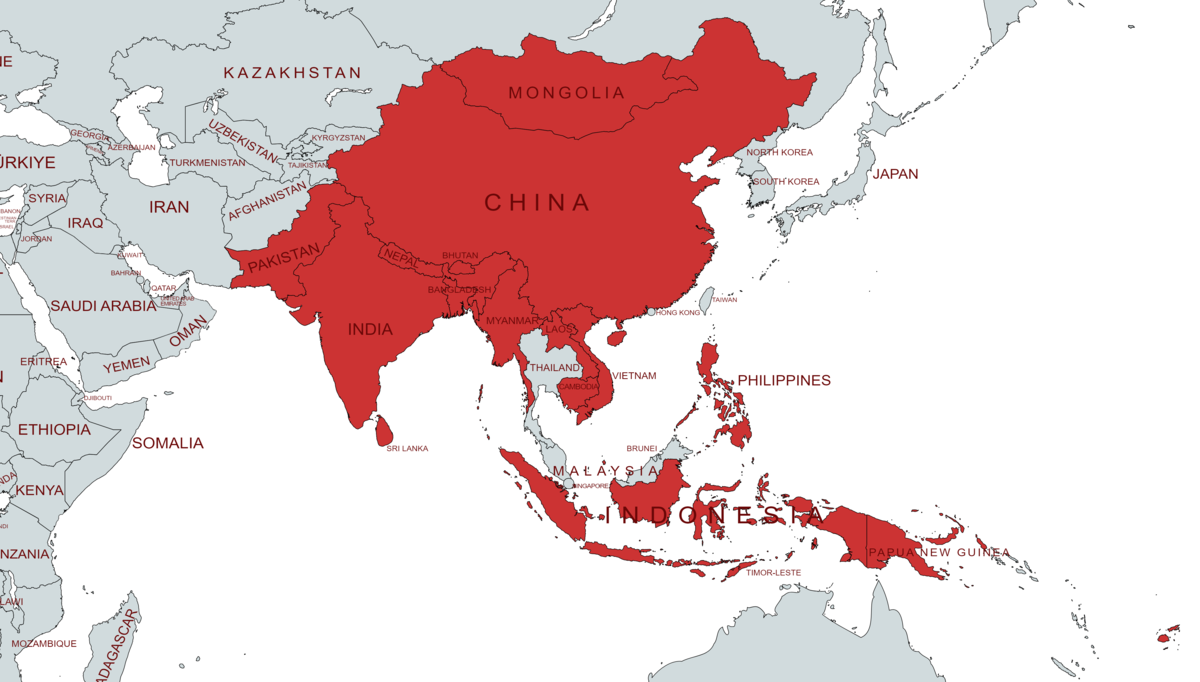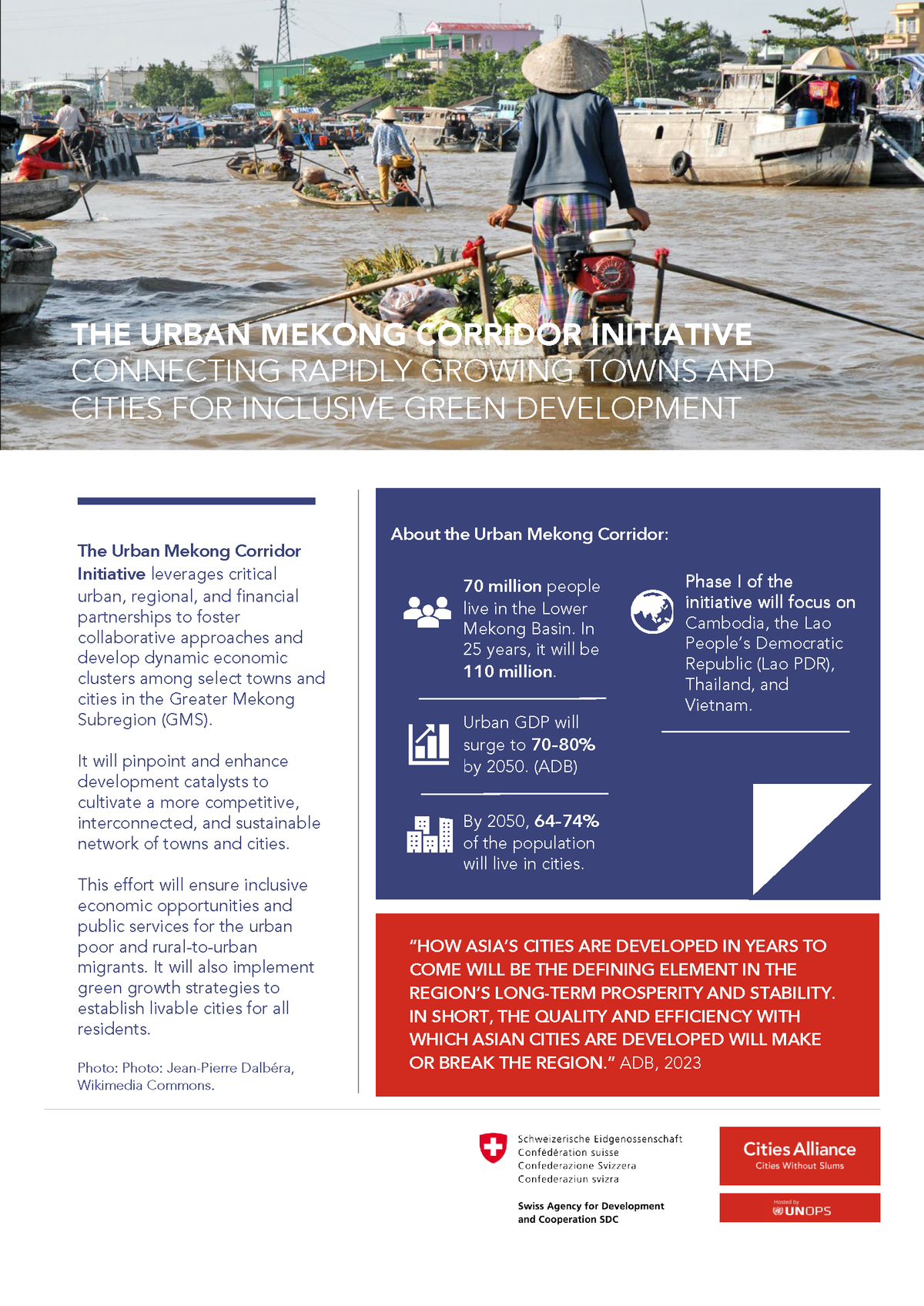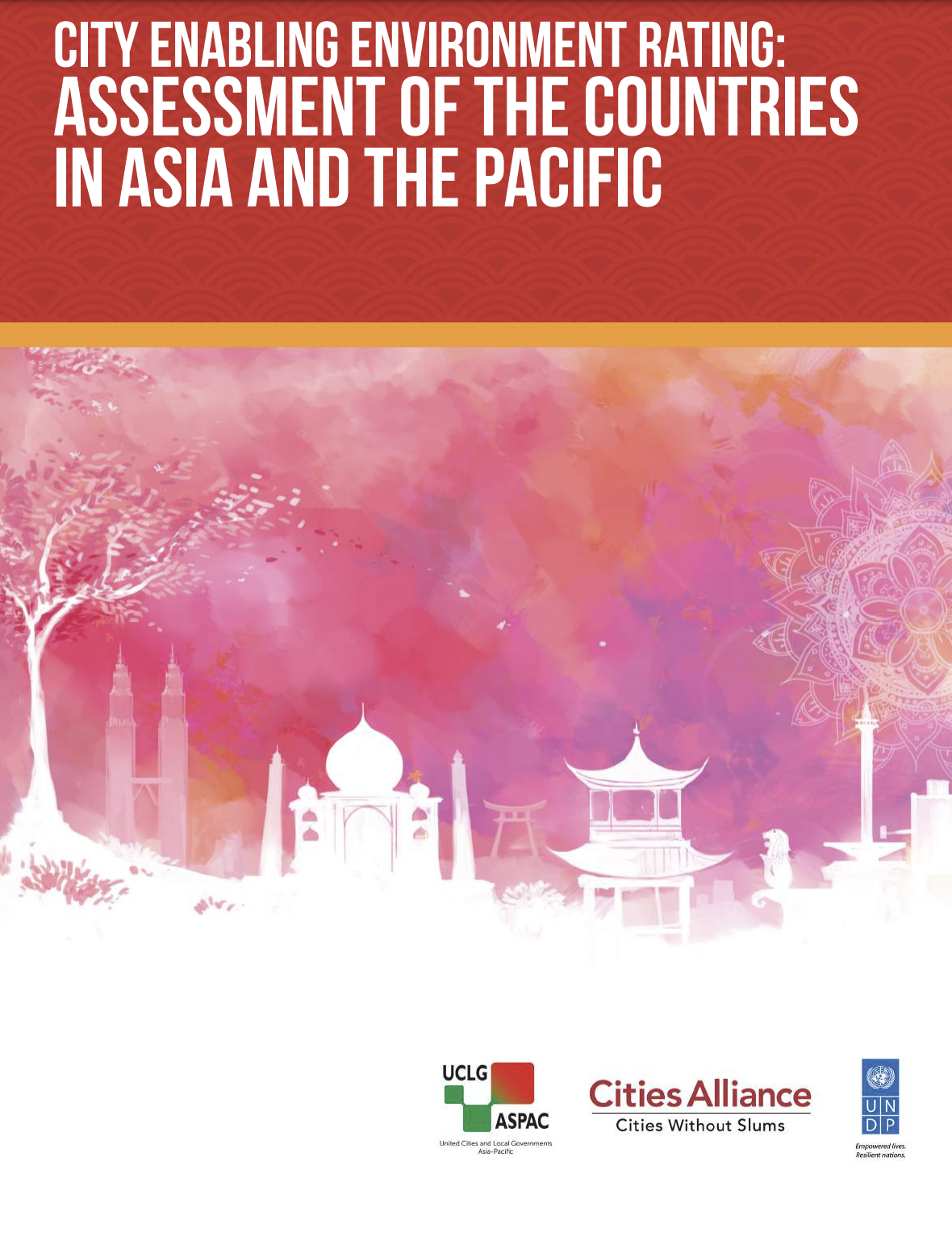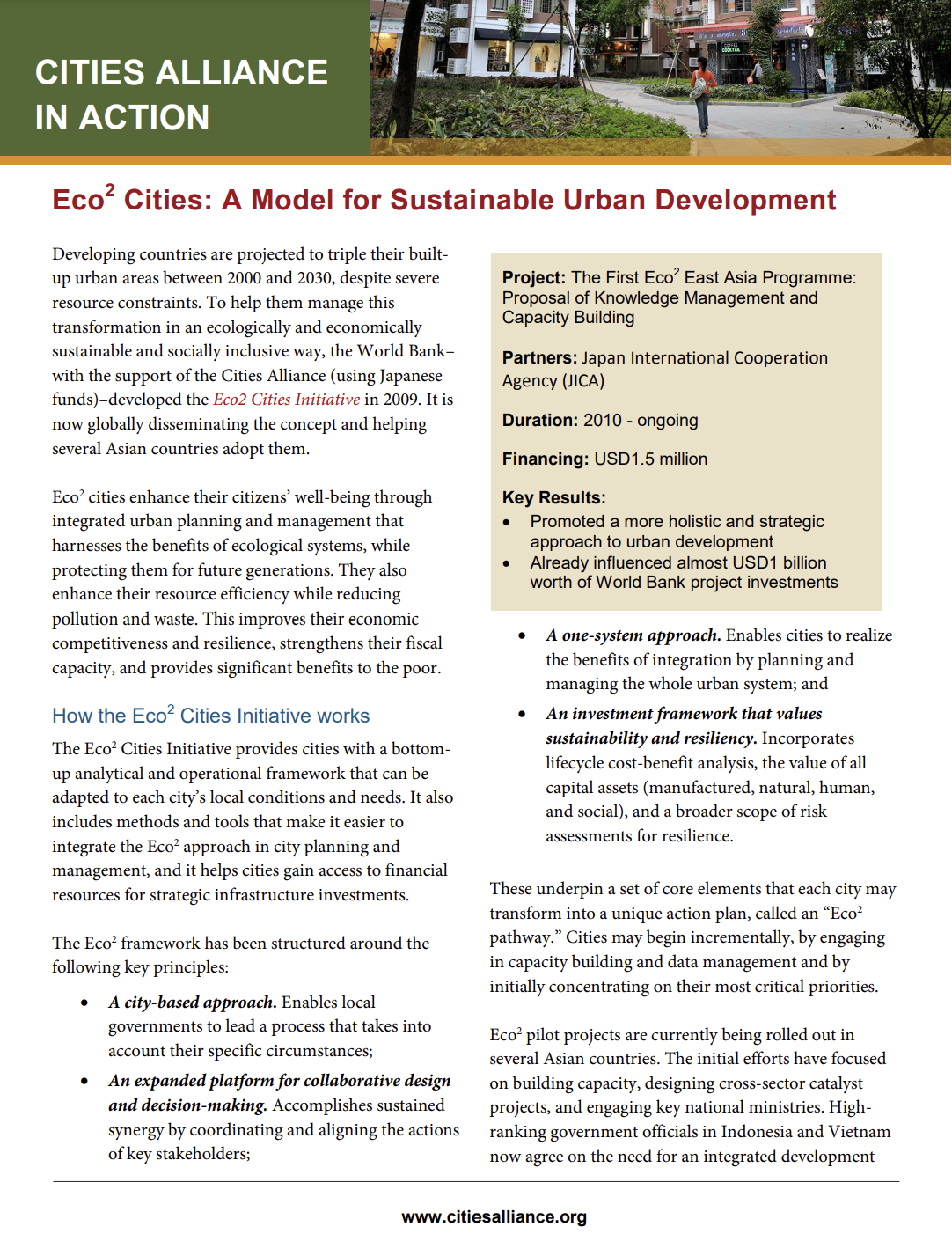Cities should be centres of opportunity, innovation, and economic growth.
Too often, it is slum dwellers, informal traders, and residents of vulnerable settlements who bear the brunt of environmental, economic, and political risks that impact cities, particularly in rapidly urbanising economies.
With the increasingly evident impacts of rising rural-urban migration and a changing climate, these pressures and casualties will only increase. Cities need resilient environmental, social, and economic systems that can withstand these shocks and stresses, particularly when measured through the eyes of the urban poor.
Citywide actions to adapt to and mitigate climate change can make a decisive contribution to national and subnational efforts aimed at fulfilling international commitments, such as the 2030 Agenda, the Paris Climate Agreement, the Sendai Framework, and the New Urban Agenda.
Areas of Expertise
Cities Alliance has worked in Asia since 2000, supporting initiatives on slum upgrading, strategic urban planning, national policy development, community-driven development, migration, gender equality, and climate resilience.
We have provided technical assistance to local and national governments in Bhutan, Cambodia, China, Fiji, India, Indonesia, Kiribati, Mongolia, Myanmar, Nepal, Pakistan, Papua New Guinea, Laos, the Philippines, Samoa, Sri Lanka, Timor-Leste, and Vietnam.

Our programmes focus on:
- Participatory and inclusive gender-sensitive urban planning and the development of city development strategies that integrate the SDGs and their translation into local development plans as well as communal investment programmes
- Accelerating transformative climate action through peer learning and partnerships among urban stakeholders to identify and implement innovative climate mitigation and adaptation strategies;
- Working hand-in-hand with local and central governments, civil society, and the private sector to stay ahead of the urbanisation curve by leveraging human mobility, including rural-to-urban migration and international labour mobility, for inclusive development
- Supporting municipalities in the development and implementation of infrastructure projects while strengthening their project management and capacity to leverage additional funding.
For the past two decades, the Cities Alliance has been working on climate change, migration, resilience, and sustainable urban ecosystems that are at the heart of recent urbanisation discussions.
Regional Initiatives
The Greater Mekong Subregion is a naturally interconnected economic region that is woven together by the Mekong River, one of the longest transboundary rivers in Asia.
One of the least urbanised areas in the world, the number of people migrating to cities is rising rapidly, with an urbanisation growth rate exceeding the global average.
Urbanisation is producing substantial economic advantages for the region. Cities and towns are evolving into drivers of economic growth and employment, as well as hubs of culture and innovation. Much of this economic growth, however, is unevenly distributed.
The Urban Mekong Corridor Initiative leverages critical urban, regional, and financial partnerships to foster collaborative approaches and develop dynamic economic clusters among select towns and cities in the subregion.
It pinpoints and enhances development catalysts to cultivate a more competitive, interconnected, and sustainable network of towns and cities. This will ensure inclusive economic opportunities and public services for the urban poor and rural-to-urban migrants. It will also implement green growth strategies to establish livable cities for all residents.
The initial phase of the initiative focuses on countries of the Lower Mekong Basin: Cambodia, Laos, Thailand, and Vietnam.
It is part of the Global Resilient Systems of Secondary Cities and Migration Dynamics initiative supported by the Swiss Agency for Development and Cooperation (SDC) from 2018–2026 through the Cities Alliance Cities and Migration programme.
This report assesses the city and local government enabling environment in 28 countries in Asia-Pacific, implemented by United Cities and Local Governments – Asia Pacific (UCLG ASPAC) with UNDP and Cities Alliance support.
The assessment helps local governments identify and address gaps in policy, legal, and institutional frameworks that are impacting their efficiency. A rating is assigned to each country based on an in-depth qualitative assessment using 11 criteria.
The diagnostics highlight the progress, constraints, and policy options for effective decentralisation – helping local governments improve their effectiveness in sustainable development and implementing the New Urban Agenda.
Developing countries are projected to triple their built-up urban areas between 2000 and 2030, despite severe resource constraints. To help them manage this transformation in an ecologically and economically sustainable and socially inclusive way, the World Bank – with the support of the Cities Alliance (using Japanese funds) – developed the Eco2 Cities Initiative in 2009.
The Eco2 Cities Initiative provides cities with a bottom-up analytical and operational framework that can be adapted to each city’s local conditions and needs. It also includes methods and tools that make it easier to integrate the Eco2 approach into city planning and management, and it helps cities gain access to financial resources for strategic infrastructure investments.
The initiative promoted a more holistic and strategic approach to urban development in Asian cities and influenced almost US$1 billion in World Bank project investments.




